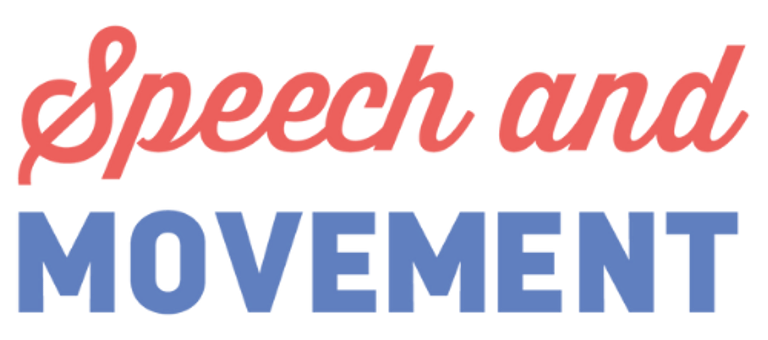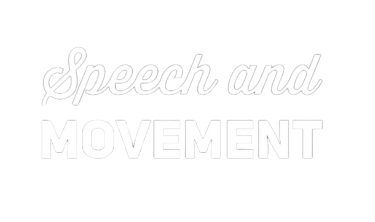Learning to Listen: How Neurodivergent Clients Taught Me to Rethink Speech Therapy
A Therapist-Led to Client-Centered Journey
12/17/20244 min read


Since becoming a Speech Language Pathologist in 2009, I have had the pleasure of working with thousands of individuals in all different settings. This career is both extremely interesting and honestly, quite challenging, because no two clients have been alike—not even the sets of twins!
When I was a newer SLP, I did my best with the training I had. I evaluated my clients with standardized and non-standardized assessments, I set goals for them, I created treatment plans and progress monitoring, I made LOTS of therapy materials, I re-evaluated and changed treatment plans, and on and on it went. My speech therapy practice was very therapist-led—with my clients looking to me for answers and direction. Although that style of therapy validated the imposter syndrome I struggled with early in my career, I now see its shortcomings as a more experienced clinician.
For my many neurodiverse clients, following the plan that I made rarely (if ever) went very well. I’d spend hours trying to create a plan I thought they’d love and could follow, only for my expectations to be bursted in the first few minutes of our session.
“What is wrong with me?” I thought. “Why can’t I figure out how to get my clients to listen, stay engaged, participate in the way that I want them to and make progress towards our established goals?” Over time, I became frustrated with my clients, thinking, “What is wrong with them? Why can’t they listen/focus/sit still/control themselves?”
Neither of these thoughts brought me any valuable answers.
It turns out, there was nothing inherently wrong with me or with them. The real issue was the flawed approaches and thought patterns I had learned.
I had been trying to “help” my clients follow the rules and expectations of society because that is what I had learned to do both personally and as a clinician. Later, I learned about the term, “masking.” Masking is a strategy used by some people, consciously or unconsciously, to appear “typical” compared to the norms of society. While this strategy can help individuals be accepted at school, work and in social situations, it can have a devastating impact on mental health, sense of self and access to interventions (1). It detracts an individual from presenting themselves in a way that feels natural to them in order to pretend to be like everyone else (i.e. put on a “mask” to look like the people around them).
There wasn’t a specific day or moment when the lightbulb went on. Over time I have slowly learned that neurodiversity is not something to be “fixed.” It is something to be respected, celebrated, curious about, and leveraged as one’s “superpower” or individual strengths while supporting areas in which they’d like to grow.
I came to realize that I had been programmed with internalized ableism and social norms that were keeping me from truly connecting with and helping my neurodiverse clients in a way that was helpful to them.
Ableism is a set of beliefs or practices that devalue and discriminate against people with physical, intellectual, or psychiatric disabilities and often rests on the assumption that individuals need to be ‘fixed’ in one form or the other (2). This applies to the neurodiverse population as well.
Ableism approaches essentially try to change unique individuals to be like everyone else—to fit in neat, tidy boxes.
What a boring, sad, monochrome world that would be.
While I can’t say that I’ve been able to reprogram every belief I’ve ever been taught (I am still human), I can say with confidence and self compassion that I’ve made great strides in my personal and professional growth. I do still sometimes get frustrated when what I’m teaching isn’t received, but instead of judging myself or my clients, I pause what I’m doing and get curious as to why it’s not working. Instead of guessing what my clients need, I ask them. If they don’t know, then we experiment with different strategies and tools together.
These are a few ways in which I’ve shifted my practice from an ableist, non-neurodivergence affirming approach to a neurodivergent-affirming approach.
Ableist, non-neurodivergence affirming approach
Standardized assessments
I create a list of treatment goals
I determine “mastery criteria” for goals
I challenge clients to maintain focus to “non preferred” activities in order to “increase their flexibility”
I provide clear expectations of behavior, attention, and focus
Neurodivergent-affirming approach
Self- or caregiver-surveys
Language and conversation samples with mutual analysis
I interview clients about their goals, priorities, how their life is currently impacted and what they want to work on.
We collaboratively write their goals.
Clients determine what they want their growth to look like and how they’ll know when they’ve achieved what they want.
I incorporate clients’ interests, needs, and strengths, and ask them what they’d like to learn more about/practice in sessions to help them in their daily lives.
I ask my clients what helps them focus and learn. I incorporate different learning styles and sensory needs into sessions. I encourage clients to advocate for those things in case I forget.
My personal and professional goal is to be an inclusive, affirming, and strengths-based clinician through a commitment to never stop learning and growing.
We are all imperfect humans living in an imperfect world. And those “imperfections” are the spice and variety and beauty of humanity, not things that need to be “fixed.”
Through curiosity and compassion for ourselves and others, we help each other grow and expand. With this mindset, we can challenge our brains to learn more about each other, practice taking new perspectives and start to create a more inclusive, supportive, and accepting world.
If you are looking for a neurodiversity-affirming speech language pathologist/communication coach who is committed to getting to know and support YOU, then you have come to the right place. Schedule a free consultation today.
1 https://www.autism.org.uk/advice-and-guidance/topics/behaviour/masking
Contact
Social
Subscribe to our newsletter
LGBTQIA+, woman-owned business
Speech & Movement, LLC © 2025
Serving speech therapy clients in Kentucky.
Also licensed in AZ, CA, CO, MI, MO, NJ, and TX.


